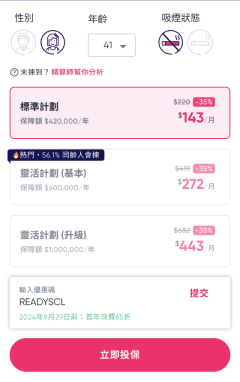Accident insurance coverage
What is the difference between accident insurance and medical insurance?
When unexpected or unforeseeable events result in bodily injury, accident insurance provides coverage for a one-time, reimburses the actual medical expenses; or provides weekly compensation.
The biggest difference between accident insurance and medical insurance is the cause of the claim.
If medical procedures are required due to an illness (such as cancer), or if an examination is needed due to physical discomfort (such as a gastroscopy to identify the cause of long-term stomach pain), only medical insurance will provide coverage. Accident insurance will not provide coverage in such cases.
| Cause | Medical Insurance | VHIS (including Bowtie VHIS) |
Accident Insurance (including Bowtie Touchwood) |
| muscle strain after running ; bone-setting treatment neede | ?* | VHIS Standard : X
VHIS Flexi : ?* |
✓ |
| Inpatient treatment due to traffic accident | ✓ | ✓ | ✓ |
| Gastroscopy needed due to long-term stomach pain | ✓ | ✓ | X |
| Undergoing colon cancer surgery | ✓ | ✓ | X |
| Learn more about Bowtie VHIS | Learn more about Touchwood |
- *Depends on whether outpatient, Chinese medicine, and bone-setting coverage are included.
- ^Requires a doctor's referral or recommendation.
- Note: The reason for coverage is for reference only. Please refer to the policy terms and conditions.
Accident Insurance vs Medical Insurance: Significant Differences in Claims Conditions
Some people may wonder if they need to purchase additional accidental medical insurance when they already have medical insurance.
The answer is: Yes, they do!
Most medical insurance policies only cover hospitalization and surgery expenses. If you are injured in an accident and do not require hospitalization, regular medical insurance will not reimburse the cost.
Although some hospitalization medical insurance policies may include emergency outpatient coverage, it only applies to emergency situations. Therefore, treatment must be received within 24 hours of the accident to be eligible for compensation.
For example, Mr. Bao’s daughter fell and was injured during a school sports class. Initially, he thought the injury was not serious and did not seek medical attention.
However, after a few days, the pain did not subside and the swelling persisted. When he finally sought medical attention, he found out that his daughter had a minor bone fracture. However, because it was more than 24 hours after the accident, her medical insurance policy did not provide compensation for this accident.
